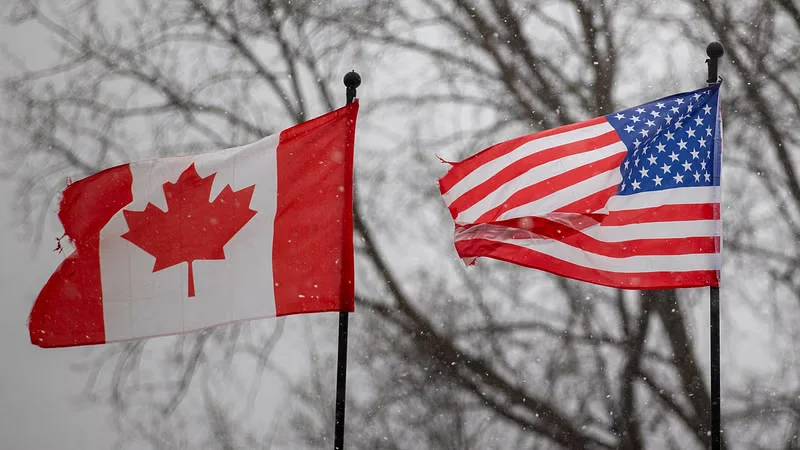- Web
- Feb 05, 2026
Canadian leaders meet US officials to address looming tariffs
-

- Web Desk Karachi
- Feb 13, 2025

WASHINGTON: Canada’s provincial and territorial leaders described their recent meeting at the White House as “constructive” as they aimed to address the tariffs threatened by the US president. This marks the first instance where all 13 premiers convened in the US capital, underlining the severity with which Canada regards the possibility of a trade conflict.
President Donald Trump had previously threatened to impose a 25 percent import tax on all goods from Canada and a 10 percent tax on energy products, a decision which was deferred for 30 days earlier this month following Canada’s implementation of new border measures.
However, on Monday, Trump escalated his threats, announcing a planned 25 percent tariff on all steel and aluminum imports globally, set to take effect on March 12.
During their visit, the leaders managed to secure a last-minute meeting with senior Trump advisers after a day of discussions with US lawmakers. Ontario Premier Doug Ford remarked on the “very constructive conversation” they had with the officials at the White House.
British Columbia Premier David Eby noted that the advisors had emphasised the importance of taking Trump’s stated reasons for the tariffs—such as border security and fair trade relations—seriously.
Canada to file WTO claim against Trump tariffs
The overarching message from the premiers was that Canada and the US thrive as economic allies, with Canada serving as a reliable supplier of commodities like energy, metals, and critical minerals. With over 75 percent of Canadian exports destined for the US, the economies of the two countries are tightly intertwined.
The implementation of steel and aluminum tariffs would have a significant impact on Canada, as it is the largest provider of these materials to the US.
If both the metals tariffs and the broader import tariffs were to be enacted, it would effectively double the costs imposed on Canadian goods. Additionally, Canada’s Finance Minister Dominic Leblanc held discussions this week with Howard Lutnick, Trump’s nominee to lead the commerce department, and Kevin Hassett, director of the National Economic Council, focusing on the deep integration of the steel and aluminum industries between the two nations. Leblanc expressed confidence that they had captured the attention of US officials.
Trump has argued that the tariffs would spur domestic production in the US White House spokesperson Karoline Leavitt stated that the administration believes these tariffs are essential for national security and will prioritize American workers.
With looming tariffs, the question arises as to whether other countries will rush to negotiate deals to mitigate the impact. The broader 25 percent tariffs on all Canadian imports stem from Trump’s concerns over illegal immigration and drug trafficking across the border. Canada has pledged to respond swiftly to any tariffs imposed, while aiming ultimately to avoid them.
In a related effort, Canadian Prime Minister Justin Trudeau recently appointed Kevin Brosseau, a former Royal Canadian Mounted Police member, to serve as a fentanyl tsar to tackle border issues. Brosseau is expected to travel to Washington soon and will focus on joint initiatives to combat the fentanyl trade, which contributes minimally to US border issues.
Canada is also rolling out a $1.3 billion border initiative, which includes nearly 10,000 frontline workers and advanced resources to curb the influx of fentanyl, a synthetic opioid significantly more potent than heroin. Many of these plans were laid out prior to the temporary tariff pause agreement between Canada and the US.




